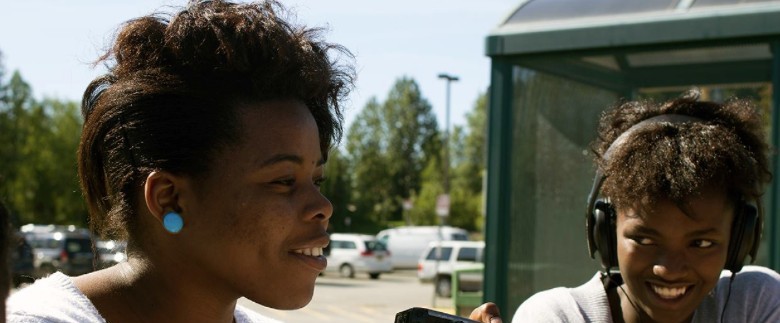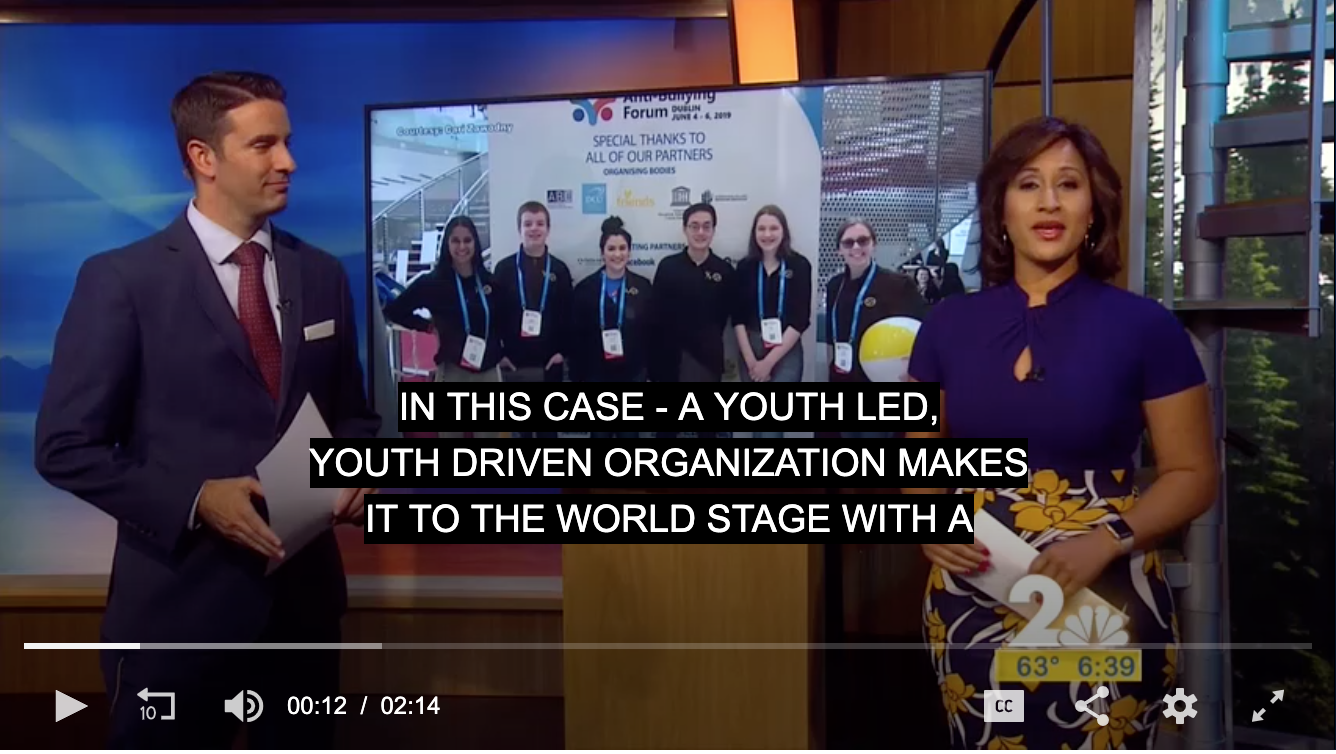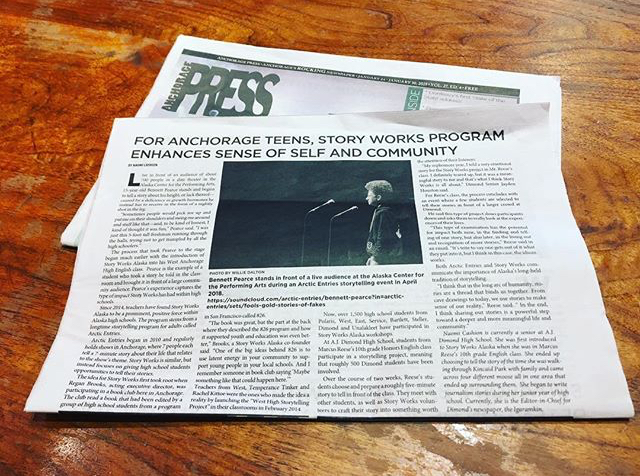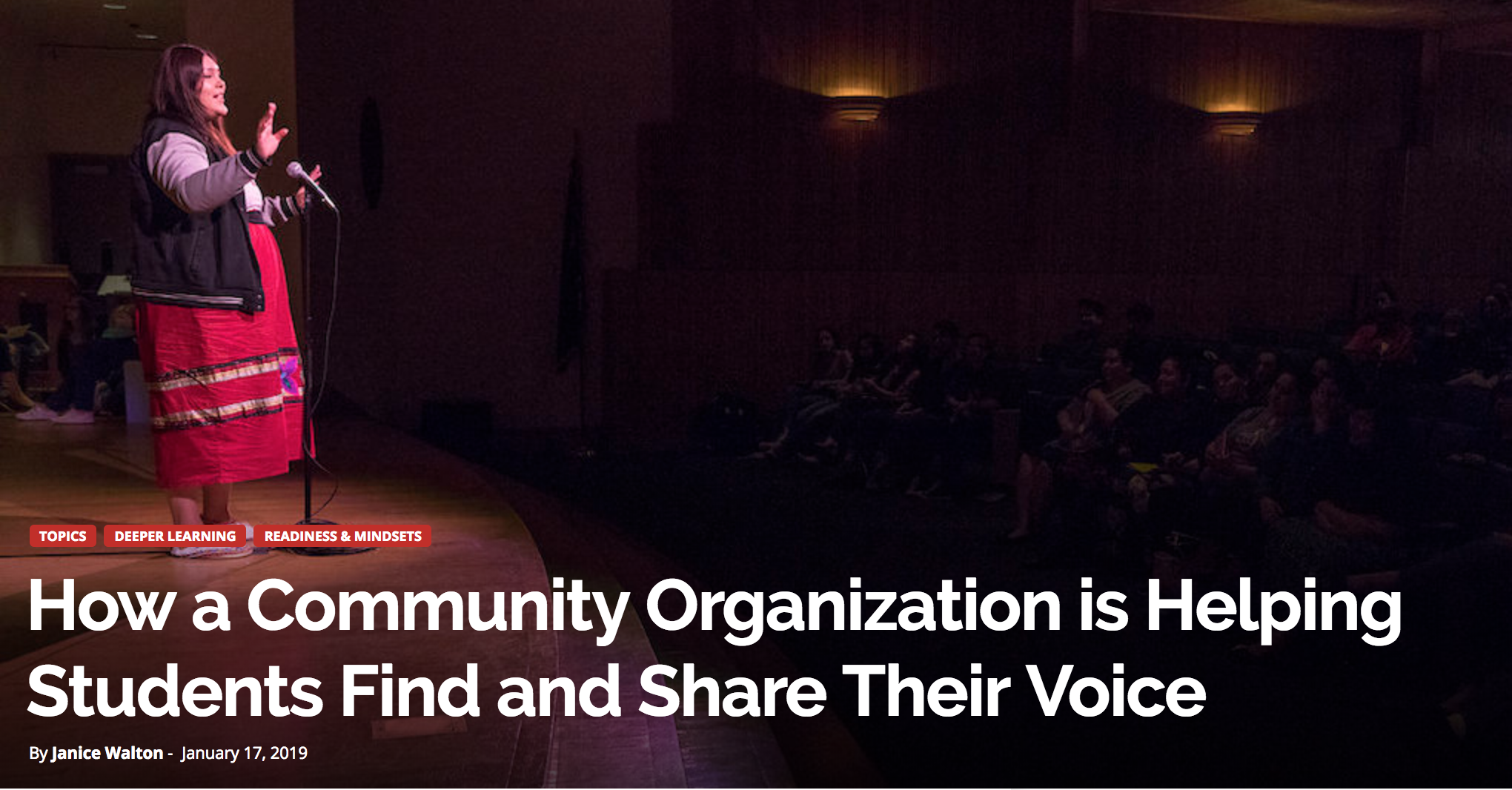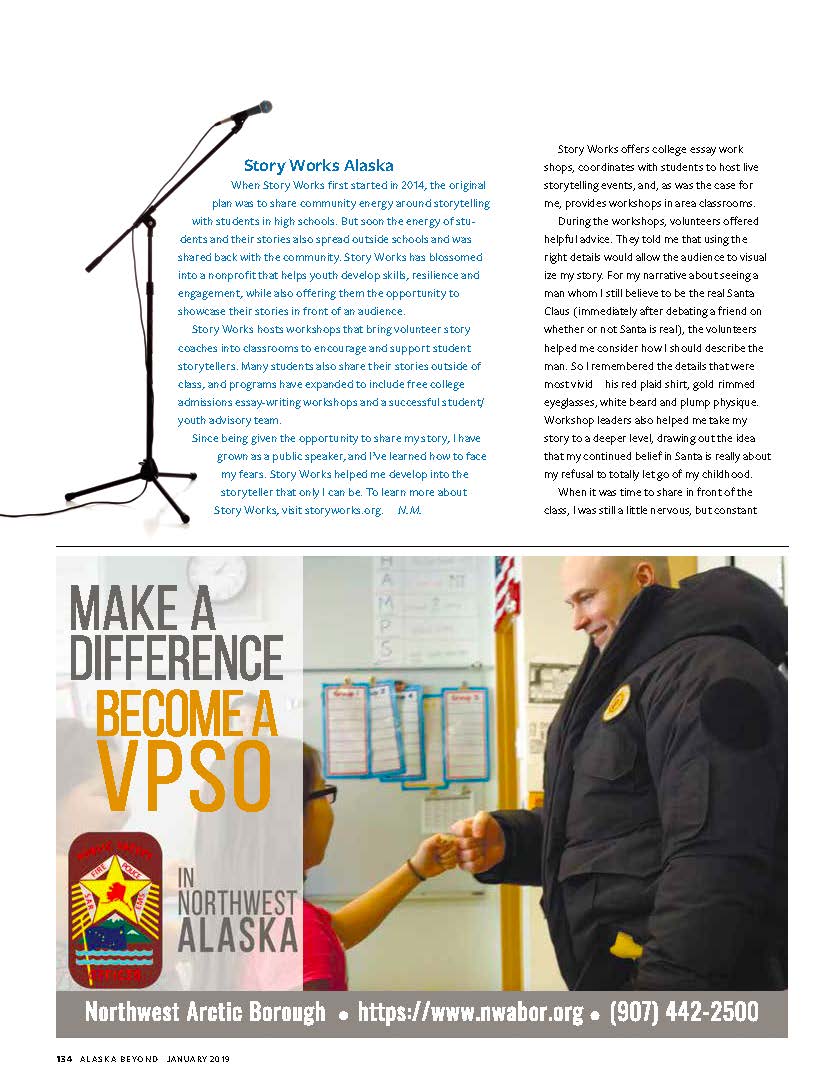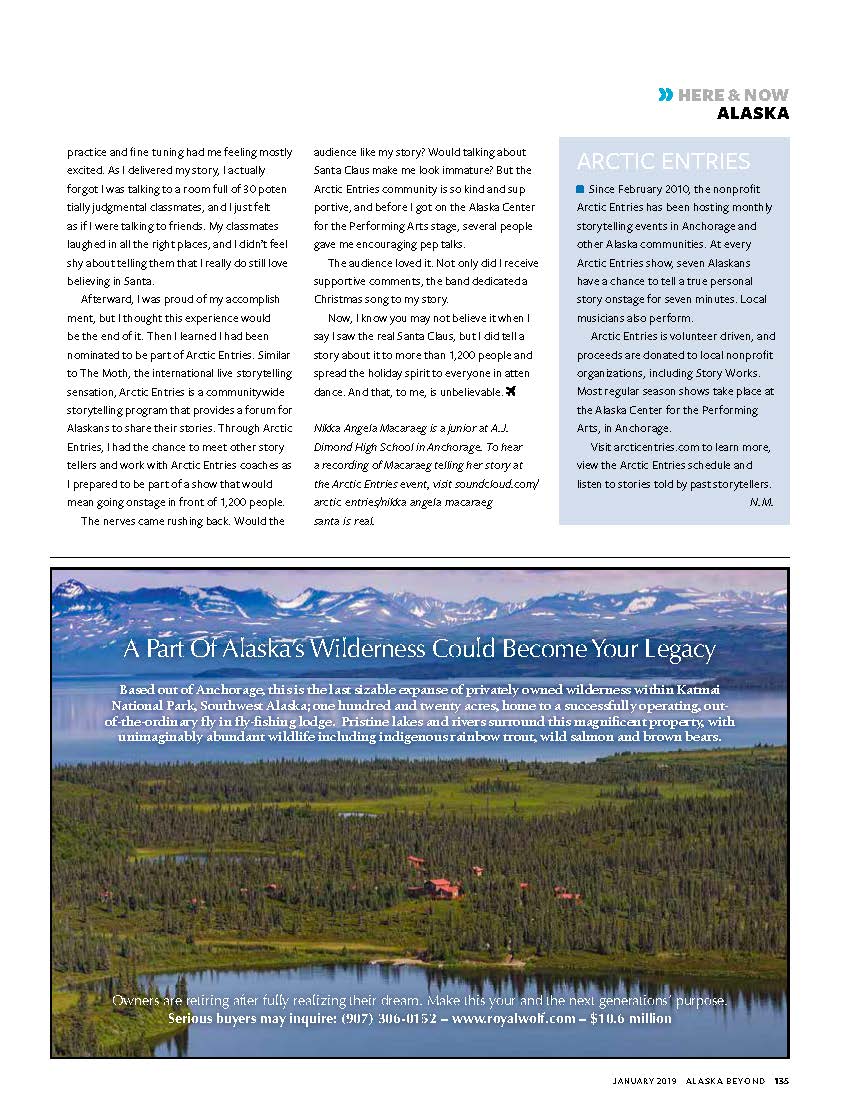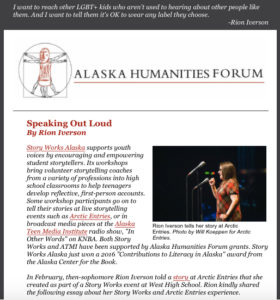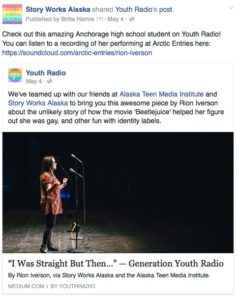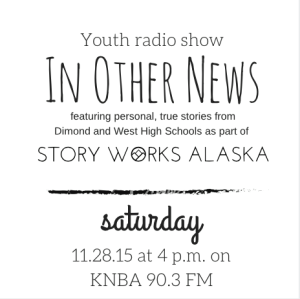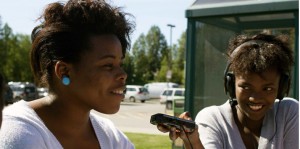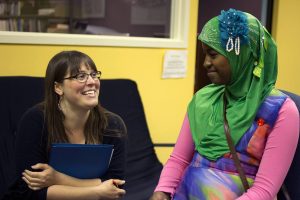LISTEN: Alaskans discuss the power of storytelling; Host: Lori Townsend with SWAK Teaching Fellow, Andrea Fuatai To’omalatai (Alaska Public Media, March 2021)
PBS American Portrait on Alaska Insight, Special LIVE Episode: Host: Lori Townsend; with SWAK Teaching Fellow, Andrea Fuatai To’omalatai (Alaska Public Media, March 2021)
Youth Action and Engagement through Storytelling: A Presentation by Annelise Burgess (SWAK Staff), Emily Saeteurn (Teaching Fellow), Bethany Smestad (Teaching Fellow), and Nithya Thiru (SWAK Staff). (Starts at 29:28; Alaska Tribal Conference on Environmental Management, December 2020)
Zoom Room: Episode 13 – Youth 4 Change; Host: Cornilius Nelson with Guests: Stefani Martinez and Ruth Dan from Youth4Change. (Zoom Room with Alaska Teen Media Institute, October 2020).
Teens use storytelling to work out personal challenges, find meaning. Host: Kathleen McCoy with Guests: Taylor Heckart & Bennett Pearce (Story Works Alums); Nithya Thiru (Executive Director). (Hometown, Alaska on Alaska Public Media. July 2020)
Ending Policing in Schools: An Open Letter to the Anchorage School Board, by Nithya Thiru. (Medium, July 2020)
You matter: Mental health and COVID-19, by Regan Brooks (Former Executive Director), Jason Lessard, and Karen Zeman. (Anchorage Daily News, May 2020)
Unleashing Storytellers in a Pandemic, by Chance Wilcox. (Pride Foundation, April 2020)
The Story Continues, by Aurora Blandino, Sharon Jenkins, and Hunter Wooden (Story Works Alums). (Alaska Airlines Beyond Magazine, January 2020)
Sharing Stories in Unalakleet. (Alaska Humanities Forum, November 2019)
Spotlight on youth: A youth led organization stands out on the world stage on anti-bullying. (KTUU, Channel 2 News, July 3, 2019)
For Anchorage Teens, Story Works Program Enhances Sense of Self and Community, by Naomi Cashion (Dimond High School Junior).(Anchorage Press, January 24, 2019)
How a Community Organization is Helping Students Find and Share Their Voice, by Janice Walton. (Getting Smart, January 17, 2019)
Stories that Work, by Nikka-Angela Macaraeg (Dimond High School Junior), (Alaska Beyond Magazine, January 2019 Issue, pp.133-135)
Story Works Event Featured on KTVA Channel 11 News, April 8, 2018
West High Student Rion Iverson featured on youthradio.org and @Forum:
Thanks to Youth Radio, the Alaska Humanities Forum, and Arctic Entries for helping Rion’s story reach a wider audience!
Listen to Rion’s story here and/or read about her experience telling it, below.
Speaking out loud
@Forum, June 29, 2016
Story Works Alaska supports youth voices by encouraging and supporting student storytellers. Its workshops bring volunteer storytelling coaches from a variety of professions into high school classrooms to help teenagers develop reflective, first-person accounts. Some workshop participants go on to tell their stories at live storytelling events such as Arctic Entries, or in broadcast media pieces at the Alaska Teen Media Institute radio show, “In Other News” on KNBA. Both Story Works and ATMI have been supported by Alaska Humanities Forum grants. Story Works Alaska just won a 2016 “Contributions to Literacy in Alaska” award from the Alaska Center for the Book.
In February, then-sophomore Rion Iverson told a story at Arctic Entries that she created as part of a Story Works event at West High School. Rion kindly shared the following essay about her Story Works and Arctic Entries experiences.

Part of me was definitely apprehensive about announcing that I’m a lesbian to my entire English class. While I was never actually closeted and was already out to most of the class, there were a few people whom I didn’t know that well and I was unsure of how they would react. There’s something decidedly different about being out to everybody as individuals, and being out to everybody as a group.
This whole thing started with a project in my English class called Story Works Alaska. The criteria were as follows: We had to write a story about a major event in our lives. The story had to be true, it had to be less than seven minutes in length, and we had to show how it affected our life. After it was written, we had to present it for the class.
When it was first announced that we had a three-week storytelling project, I wasn’t exactly thrilled, but once it was further explained, my excitement began to grow. This wasn’t an analytical essay on The Iliad; I would get to talk about myself. I love talking about myself.
The first step was figuring out what to write about. The obvious choice was to write about the murder of my uncle, which taught me that it’s important to let people know how you feel about them before it’s too late. While this is one of the most important lessons I’ve learned in life, I’ve written about that for every English class I’ve had since the fifth grade. Not only did I want to write about something new, for a change, but I wanted to write about something less upsetting. This decision led me to the topic I ultimately chose: how Beetlejuice, a classic Tim Burton film from the 80s, made me gay.
One of the things that made this project so great was that the story was not supposed to be performed word for word. It was supposed to be told casually, as though you were telling a story to a group of friends. In fact, we didn’t even have to turn in the written speech (my story notes are pretty much entirely in text speak). That removed a lot of pressure; but there was still the discomfort of coming out to my whole class. Anyways, I performed my story, and of course, all of my apprehensions were nullified. I had fun, my classmates were receptive, and it was, for lack of better phrasing, super chill.
I ended up getting a perfect score on the assignment, but that’s not where this story ends. There was going to be a show in the auditorium at school one night where nine students would perform their stories in front of an audience. I decided to do it. The school auditorium show led to an opportunity to share my story at the community-wide storytelling event, Arctic Entries, in front of 750 people. I was definitely nervous, but I rose to the challenge.
Since performing my story at Arctic Entries, I’ve been approached by many people who attended the show as well as those who heard it on the radio, and it’s just overall been a really cool experience. So far I’ve not received any negative feedback, but I understand that putting my story out into the world could elicit that. Having never experienced homophobia, I don’t know how I’d respond. What I do know is that I want to reach other LGBT+ kids who aren’t used to hearing about other people like them. And I want to tell them it’s OK to wear any label they choose.
-Rion Iverson, Anchorage, AK
–
In Other News:
Story Works student storytellers from Anchorage’s West and Dimond High Schools have been featured on the Alaska Teen Media Institute’s youth radio show, In Other News!
Listen to these students share their stories here.
–
Storytelling gives refugee teens a voice in their new community
Olive Mtoni records Furaha Sefania outside of UAA. (Photo Courtesy of Alaska Teen Media Institute.)
Everyone has a story to tell, but it may not be the story you’d expect. An Anchorage non-profit called StoryWorks is helping teenagers find their stories, and this summer they focused on students who arrived in the state as refugees.
“Did you learn something from that day?” Rosey Robards asks 17-year-old Furaha Sefania.
Sixteen-year-old Olive Mtoni interjects in Swahili, translating for her new friend. Both girls are originally from the Congo, but Mtoni’s family fled the war-torn nation to Rwanda before she was born. Sefania’s went to Mozambique. They met for the first time at East High in Anchorage late last year. But that’s not the story Sefania has chosen to share…
“Wakati nilikuwa nacheza mpira na rafiki zangu, na mdogo…” Sefania tells her story.
She’s talking about a time when she was 12 years old and playing soccer with her friends back in Mozambique. Her little sister calls her to come eat and she refuses to go. When she finally heads home two hours later, the food is gone. Her sister laughs because she received extra, and her mother admonishes her – if you like soccer so much, than you can eat it! Sefania says she learned to listen to her mother. So why tell this story?
“Niliona tu, tuongee.” She just thought of it when chatting.
And that’s the whole point – stories are just moments to help people understand each other. That’s why 11-year-old Khalil Edais participated in the program. He was born in Anchorage but he loves storytelling and wanted to learn about the other kids.
“A lot of the kids have stories to tell, so this is like a big camp for them because they have big stories from their countries that they told here, so it’s pretty big for me to come here.”
Edais learned about a girl who climbed a tree, was distracted by a monkey, and ended up at the hospital getting shards of wood pulled from her arm. A boy told about the disappointment of leaving home for a cold place but eventually making new friends.
Jessica Kovarik, the program director of Refugee Assistance and Immigration Services, says these stories can help the community understand people from other nations.
“We really wanted to give the youth an opportunity to have some voice and to learn to tell their stories and recognize how powerful their stories are and how much they have to share with the community.”
Rosey Robards chats with Iqlas Dubed. (Photo Courtesy of Alaska Teen Media Institute.)
Twelve-year-old Iqlas Dubed shares the story of her first bee sting – just a month ago, near the Campbell Creek Science Center.
“Then I ran around, ran around, ran around. Then came, I was out of breath, so I was just like ‘It hurts! It hurts!’ And the bee was still on my hijab so I took it off.”
The sting taught her what goes around, comes around. She laughed at other kids who were stung on previous days, then was hurt herself. But telling the story taught her “Don’t be scared to tell others. Other people that you don’t know.”
She said she feels kind of brave now.
RAIS helps resettle about 100 to 140 refugees in Anchorage each year. StoryWorks started in 2014 and teaches high schoolers from around the community to find their voices.
–
Anchorage storytelling workshop provides outlet for young refugees
Watch here.
Interested in donating to support our work?
Thank you, we’d love that!
Donations to Story Works Alaska are used to support our growing program.
Click here to make a tax deductible donation today. And thank you again!

